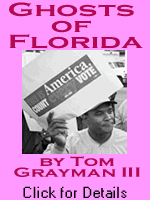
|
|||||||||||||||||||||
 |
|||||||||||||||||||||
 |
|||||||||||||||||||||
 |
In the early morning hours of December 3, 1984, 27 tons of methyl isocyanate (MCI) gas escaped from a Union Carbide pesticide plant located in Bhopal, India. In real life scenes reminiscent of horror movies, thousands of residents ran through the streets, choking, vomiting blood and miscarrying fetuses as they attempted to flee from the fatal cloud of gas. Some were trampled to death by the panicked crowds. It is estimated that between 7,000 and 10,000 people died in the days immediately after the incident and an additional 15,000 have died since. When news of the twentieth anniversary of the Bhopal incident was announced, I said somewhat sheepishly, “Has it really been twenty years?” I was embarrassed. I had quite simply forgotten about Bhopal. A lot has happened around the world in the last twenty years. America has made war on Iraq twice and I have frankly lost count of the number of times Jean Bertrand Aristide has been run out of his elected office. There is a lot to think about, but that doesn’t excuse forgetting the Bhopal horror. Not only had I forgotten, but the few memories that remained were completely false.
My initial questions were, “Didn’t they sue?” “Weren’t they compensated?” I
recall one editorial cartoon depicting an army of ambulance chasing
lawyers parachuting into Bhopal. In fact, no one was ever held liable for this crime. In 1991 Indian courts ordered Warren Anderson, Union Carbide’s CEO, to face criminal charges. Anderson, like every other common criminal, refused to show up. He was declared a fugitive but the United States government ignored the extradition request and in September 2004 rejected it without comment. A settlement was worked about between the Indian government and Union Carbide in 1989. Victims were not consulted about its provisions, which included giving the corporation immunity from civil and criminal prosecution. According to the Amnesty International report, Clouds of Injustice, little of the compensation has made its way to victims.
The settlement, endorsed by the Indian Supreme Court in 1989, involved UCC paying US $470 million. Even this inadequate sum has not been distributed in full to the victims. About 30% of claims for injuries have been rejected by the government, around 16,000 claims are outstanding, and most of the successful applicants have received minimal amounts of compensation. As of September 2004, around US$330 million of the US$470 million remained held by the Reserve Bank of India. Twenty years later Americans mutter that globalization has sent
jobs to India. Perhaps we should think about Bhopal Contrary to popular opinion, American suffering is not worse than anyone else’s. Millions have suffered because of powerful and corrupt interests in our country and in others. The Indian government didn’t bother looking out for the Robs/Rajendras of Bhopal when they had the opportunity. They sucked up to a big corporation and gave their own people short shrift. So we are all victims. People thrown out of work in this country are certainly victims. If corporations and politicians in America wanted to do something about job loss caused by globalization they certainly could. They do nothing because cheap labor makes for a fat wallet. Don’t get mad at Rajendra. Get mad at Congress. Get mad at Wall Street.
The Bhopal plant would never have existed without the shady alliance
that always exists between governments and big business. The plant
produced pesticides that
were to be part of a World Bank financed “green revolution” that
would supposedly benefit Indian farmers. The green revolution Three years after the September 11th attacks Americans are willing to put up with almost anything if they are told they are being kept safe from terror. Their corporate masters don’t feel the same way. While we submit to strip searches in airports, chemical plants across the U.S. can be easily sabotaged. The chemical industry has successfully fought all attempts to regulate safety standards. There are thousands of potential Bhopals across the United States. Meanwhile back at the corporate ranch, Dow Chemical purchased Union Carbide in 1991. Dow also denies any responsibility for liability or for cleaning up the site but assures us that it has “never forgotten that tragic event.” Thank God for small favors. I am sure that the physically and emotionally scarred survivors of Bhopal are grateful that Dow remembers them. Margaret Kimberley’s Freedom Rider column appears weekly
in |
| December 7 2004 Issue 117 |
|||||||||
|
|||||||||
|
|
|||||||||
| Printer Friendly Version | |||||||||
 |
|||||||||
 |
|||||||||
 |
|||||||||
| |
|||||||||
| |
|||||||||



























